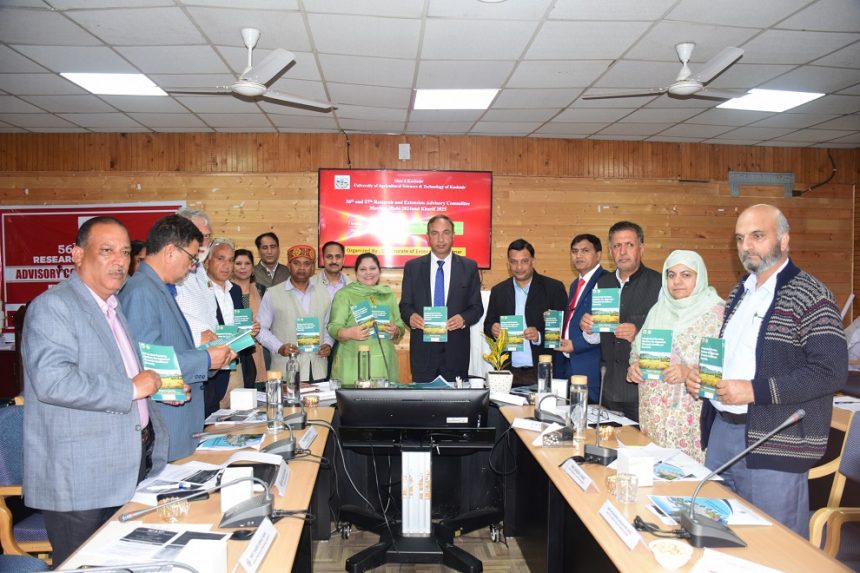Srinagar, April 15: The Directorate of Extension, Sher-e-Kashmir University of Agricultural Sciences and Technology of Kashmir (SKUAST-K), Tuesday convened its 56th and 57th Research and Extension Advisory Committee (REAC) meetings reaffirming the institution’s commitment to aligning research and extension efforts with grassroots agricultural needs in Jammu and Kashmir.
A statement said that the meeting, chaired by the Vice Chancellor, Professor Nazir Ahmad Ganai, was held at the university’s main campus. Prof Ganai underscored SKUAST-K’s mission to transition from traditional farming to a modern, sustainable, and commercially viable model. He called for interdisciplinary collaboration, value chain integration and active involvement of the youth through agri-startups, reaffirming the university’s vision of transforming Jammu and Kashmir into a model bio-economy state.
Announcing a major development, Prof Ganai revealed that preliminary work has begun on a 500-kanal site in Sallar, Anantnag, sanctioned for the establishment of a new Krishi Vigyan Kendra (KVK) and Research Station. This facility will serve as a hub for innovation, demonstration, and farmer training in South Kashmir. He also commended the Floriculture Breeding Division for elevating the university’s national standing in its respective field.
The meeting marked a leadership transition, with Professor Raihana Habib Kanth assuming the role of Director Extension/SAMETI. Leading the proceedings, she stressed the importance of integrating grassroots feedback into research planning, particularly in areas such as seed production, pest and disease management, and nutritional security. Prof Kanth highlighted the Directorate’s recent achievements, including increased field outreach, the promotion of climate-resilient agricultural practices, and stronger institutional convergence. A new booklet on Integrated Farming Systems was also released, offering updated models adapted to the region’s diverse agro-climatic zones.
Technical sessions featured feedback from scientists and field officers. Key concerns included the indiscriminate use of pesticides in horticulture, development of Plant Quarantine (PEQ) infrastructure, and the need for a comprehensive technological inventory, as suggested by Dr M.K. Verma, Director of the Central Institute of Temperate Horticulture (CITH). The committee also reviewed the outcomes of minikit trials across districts, with proposals for the release of new varieties of wheat, maize, and vegetables. Suggestions to upscale successful interventions and strengthen coordination with allied departments were actively discussed. Officials from Agriculture, Horticulture, Animal Husbandry, Sericulture and other key sectors contributed valuable insights. The meeting concluded with a vote of thanks and a collective resolve to enhance research-extension linkages for the betterment of the farming community.







